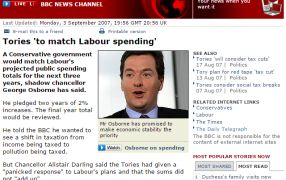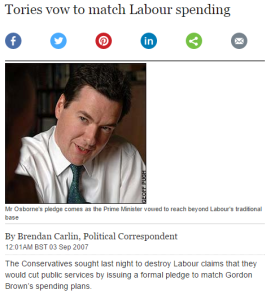As the UK 2015 General Election approaches, we are barraged with a set of candidates who, as always, ‘preen and smile and bring forth a shower of clichés with a solemnity appropriate for epic poetry’, as the late Howard Zinn once commented. The unpopularity of such candidates has been reflected in voter turnouts in Britain, which have been on whole decreasing: less than two thirds of the electorate voted in 2010 yet that was the highest turnout in a general election of the 21st century so far. There is also an undeniable correlation across the country in recent years between low voter turnout and poverty. The party most harmed by this was Labour, Blair’s centrist coup in 1997 and the consequent 13 years of ‘Third Way’ politics caused Labour to lose 5 million working class voters and forced members to leave in droves. In the 2010 Labour received the lowest share of the popular vote since 1918 and Scottish Labour in 2015 has been described as being ‘in meltdown’.
One of the overall reasons for this is because people are totally disillusioned by the political system, elections are fought less and less over issues which matter to people and more and more over the personality of the leader. Even at the heart of the Establishment, we had Ken Clarke, Tory cabinet minister for Thatcher, Major and Cameron commenting in The New Statesman –
‘The public debate and the media, which is becoming increasingly celebrity culture, rather hysterical, sensational, and reduces the whole thing to theatre. Everybody’s election campaigns are presidential, everything’s attributed to the party leader. What matters is how the party leader eats a hamburger and all this type of thing. I mean, it does switch the public off.’
Clarke’s analysis seems on point, elections more than ever are based on the style and the personality of the party leader. David Cameron was recently filmed by The Sun, most of the footage concentrated on the Camerons having their breakfast at No.10 while trying their hardest to appear like normal people. Similarly, The Daily Mail interviewed Samantha Cameron for a personal insight into their family life, another clear attempt to humanize and normalise the Camerons. This ‘celebrity culture’ which has pervaded into the election campaigns is a symptom of our broken political system which breeds this ‘theatre’ kind of debate.
Paul Krugman touches on the economic aspect of this ‘theatre’ in his article in the New York Times where he refers to the ‘misleading fixation of budget deficits’, both Labour and the Conservatives have accused one another of making ‘irresponsible’ funding promises. Moreover, over the last five years the Conservatives, Liberal Democrats and much of the media have lectured us on the necessities of cuts while borrowing went up and the economy almost slumped into a triple-dip recession.
This is the dominant narrative Krugman was referring to –
“In the years before the financial crisis, the British government borrowed irresponsibly, so that the country was living far beyond its means. As a result, by 2010 Britain was at imminent risk of a Greek-style crisis; austerity policies, slashing spending in particular, were essential. And this turn to austerity is vindicated by Britain’s low borrowing costs, coupled with the fact that the economy, after several rough years, is now growing quite quickly.”
 But this is simply not true. In 2007, George Osbourne said he would match Labour’s spending over the next three years, despite the fact that now he claims Labour overspent. Britain was nowhere near the so-called ‘Greek style-crisis’ and no other economy which borrows in its own currency was liable to such a crisis. Furthermore, the only reason the economy has now tenuously recovered is because Cameron held off reams of planned spending cuts. As Krugman points out-
But this is simply not true. In 2007, George Osbourne said he would match Labour’s spending over the next three years, despite the fact that now he claims Labour overspent. Britain was nowhere near the so-called ‘Greek style-crisis’ and no other economy which borrows in its own currency was liable to such a crisis. Furthermore, the only reason the economy has now tenuously recovered is because Cameron held off reams of planned spending cuts. As Krugman points out-
‘if this counts as a policy success, why not try repeatedly hitting yourself in the face for a few minutes? After all, it will feel great when you stop’.
While unemployment is decreasing, the jobs the coalition congratulates itself on creating amount to low-wage, low-skilled jobs and zero hours contracts. The ‘recovery’ narrative ignores the fact the coalition presided over the biggest decrease in average living standards for over 100 years. Meanwhile, the extremely rich, the so-called ‘wealth creators’, have benefited significantly and even received nonsensical tax cuts.
Unsurprisingly, this inequality comes at a price, The Telegraph and The Guardian reported that the life expectancy in Britain’s poorest areas is worse than Rwanda and on par with Botswana. This reality is completely ignored by the established narrative: ‘the recovering is working’, ‘we’re cutting the deficit’. A government could both cut the debt and improve living standards, they do not have to be mutually exclusive. Considering the money spent on benefits for people who’re in poverty-paying jobs, surely making employers pay the living wage saves the Exchequer money and stops the public subsidising low-wage labour?
It’s clear this pervasive narrative has also been a distraction from the privatisation of the National Health Service which the coalition have successfully downplayed by referring to it as ‘reform’ or ‘reorganisation’. The Health and Social Care act of 2012 has allowed companies to bid for NHS contracts, the biggest of which in March 2013… was worth up to £780 million’. According to RT News, it ‘will see 11 private firms perform heart and joint surgery, carry out scans and provide diagnostic tests for patients from mobile medical facilities’. Among the companies engaged in bidding for contracts is Lockheed Martin, an arms producer. To add further salt to the wound, this has been carried out while cuts are taking place to public-run facilities. While there has been a lot of rhetoric from Labour on the NHS, the reality is that Private Finance Initiatives (PFI) implemented by New Labour also privatised large chunks of it under the guise of a ‘public-private partnership’. The public, perhaps quite rightly, doesn’t know who to trust. Meanwhile, across the Atlantic, the US provides us with the perfect example of an expensive, inefficient and sub-standard health system run for private profit. In the States, those who can’t afford insurance can only receive treatment if they stay in Accident and Emergency, often for days on end, their family therefore is forced to stay with them to bring them food and care for them. Our politicians continue to push us further in that direction and away from most countries in the developed world.
Despite the important issues at stake, the childish squabbles refuse to cease, so you would be forgiven by me for thinking that it’s all just theatre.
